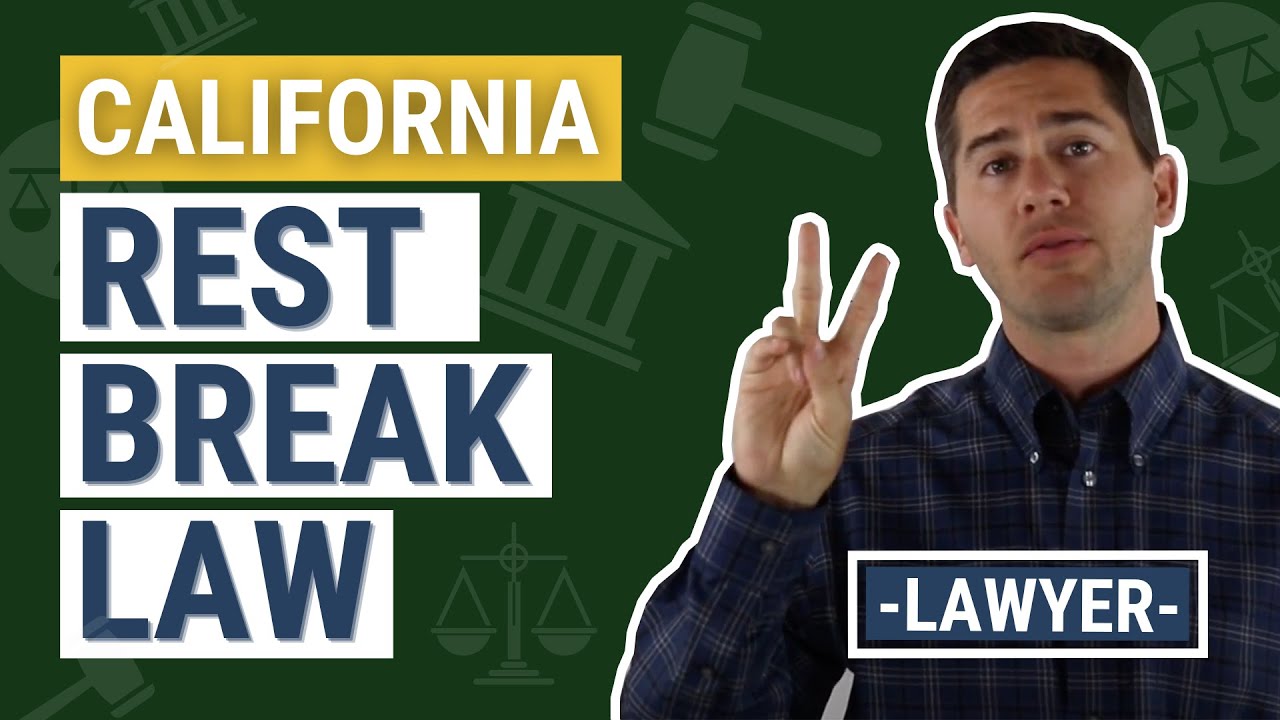15 Minute Break Law California - Effects Of Allowing Workers To Take Advantage Of It
What is the 15 minute break law California? If you work more than five hours in a workday as a non-exempt employee in California, you are entitled to a 30-minute duty-free dinner break under California law (which is significantly more favorable to employees than federal labor law). Every 4 hours (or "significant portion" thereof), you are also entitled to a 10-minute break during which you are relieved of all duties.
K. N.Sep 26, 202214 Shares619 Views

What is the 15 minute break law California? If you work more than five hours in a workday as a non-exempt employee in California, you are entitled to a 30-minute duty-free dinner break under California law (which is significantly more favorable to employees than federal labor law).
Every 4 hours (or "significant portion" thereof), you are also entitled to a 10-minute break during which you are relieved of all duties.
One additional hour of normal pay for each day on which a meal break violation happened, and another additional hour of regular compensation for each day on which a rest break violation occurred, is needed if your employer doesn't comply with break legislation requirements.
History Of 15 Minute Break Law California
In 2012, the California Supreme Court ruled on the important case of Brinker Restaurant Corp. v. Superior Court, which was about meal and rest breaks.
Significant litigation has been brought before federal and state courts over the topic of whether or not companies must monitor employee break usage or merely supply breaks.
The most important element of the case, which included whether or not employers had to guarantee employees took their lunch breaks, was decided in Brinker's favor by the California Supreme Court.
It is not the employer's responsibility to monitor employees during lunch breaks to make sure they aren't getting any work done.
Employers in California won a major victory with this unanimous decision, but it's not without its risks. The ruling makes it clear that class action lawsuits can still be filed over issues like meal and rest breaks, and that employers with unclear policies may be more likely to be sued.
If a company has any doubts about its meal and rest break policies, it should speak with an attorney. CalChamber members can learn more about the Brinker ruling and what it means for businesses on HRCalifornia.com.
What Are The Meal And Rest Break Requirements In California?
The California Labor Code gives the following examples of what must happen during required breaks:
Timing Of Meals
A thirty-minute unpaid dinner break is provided to employees who work more than five (5) hours every day. A worker who doesn't plan on putting in more than six hours a day, however, can negotiate a waiver of the dinner break.
If an employee works more than ten (10) hours in a day, they are entitled to an additional unpaid 30-minute meal break. However, the worker is permitted to forego this additional meal period if:
The maximum length of a workday for him or her is twelve (12), and he or she did not forego the first meal break.
Please note that it is against the law for an employer to insist that employees stay on the premises during lunch breaks. The same goes for personnel who are expected to stay on the premises during their lunch breaks; in such cases, they should be paid a premium.
Rest Breaks
California law also mandates pauses for employees to relax. Rest breaks must be at least ten (10) minutes long for every four (4) hours, or a significant percentage thereof, that the employee will work on a given day.
These breaks should be considered compensated time worked. The break time should ideally occur halfway through the work session.
However, workers whose shifts last less than three and a half hours (3 1/2) every day are not required to take rest breaks.
Consequences For Failing To Provide Meal And Rest Breaks
Violations of California's rest break requirements may be quite expensive for companies. The potential for astronomical fines is now higher than ever thanks to judicial rulings.

CA Rest Break Law Explained by an Employment Lawyer
Neglected Lunch Time
If you fail to provide an employee a meal break on a workday, you must pay them an extra hour's worth of wages at their usual rate. The employee has a right to the extra hour's salary. It is possible to submit a claim for unpaid pay after three years have passed.
Ignored The Need For A Break
If either break is skipped or cut short, the employer must reimburse the employee for the missed time in the following payment.
Neglected Rest And Meal Times
There has been much debate about whether or not an employee should receive one hour of extra pay if they miss both their lunch break and their rest break on the same day. Then again, maybe you lose two hours of salary due to the two infractions.
A California Court of Appeal held that it is two hours of compensation in United Parcel Service v. Superior Court of Los Angeles County. Since the premium pay requirement is split between two wage order sections, there are two distinct solutions available.
People Also Ask
What Are The Consequences For A Company That Breaks The Law By Not Giving Workers Time To Eat And Rest?
If an employer doesn't give an employee a required break, the employee is entitled to an extra hour of pay at their regular rate for each day the break wasn't given.
Do Non-Overtime Workers Have The Right To Meal And Rest Breaks?
In California, workers who aren't eligible for overtime don't get rest breaks, but they do get meal breaks.
Can I Skip My 15 Minute Break?
It is legal to skip or waive your meal or rest break, or to take them late, without pressure or encouragement from your employer.
Can I Waive My Lunch Break In California?
You may be able to waive your lunch break if you and your employer reach a mutual agreement.
Conclusion
In total, the 15 minute break law California means if an employee is working a shift lasting five hours or longer, he or she is eligible for a 30-minute meal break. Employees who work more than 10 hours in a shift are allowed two 30-minute meal breaks. Every four hours, non-exempt workers are likewise entitled to a ten-minute break.
Latest Articles
Popular Articles
